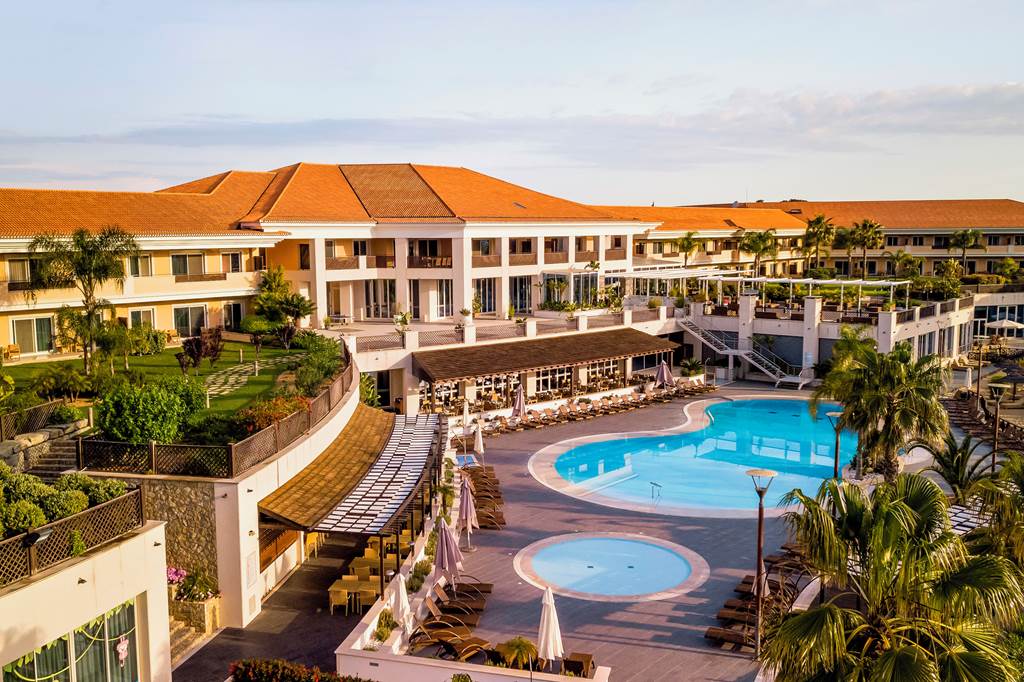The UK’s latest budget announcement has ushered in significant reforms that could transform how British expats manage their pensions and inheritance tax (IHT) liabilities.
Changes to inheritance tax and pensions for expats
By Portugal team
This article is published on: 22nd November 2024

These changes, particularly impactful for long-term expatriates, redefine key aspects of domicile, residency, and asset protection. Here’s what you need to know that will affect British expats and why understanding the changes is critical.
From Domicile to Long-Term Residency: a seismic shift
Historically, the concept of “domicile” has been central to determining UK IHT obligations for British citizens. Many expats found that, despite decades abroad, they were still deemed UK domiciled, exposing their global estates to IHT.
The new rules mark a major shift, particularly impacting British expatriates who have been living overseas for extended periods, replacing the concept of domicile with new long-term residence (LTR) rules. Under these new rules, the test for liability to UK IHT will be based on residency.
Those who have lived outside of the UK for at least 10 of the last 20 years will now be classified as non-UK long-term residents. This change means their global assets (except UK based holdings such as pensions, property, investments) will be exempt from UK IHT.
Therefore, expats intending to remain out of the UK for extended periods of time should seriously consider moving assets outside of the UK.
If an individual does not meet the non-residency criteria at death, their entire estate remains subject to UK IHT and the usual rules, exemptions, and tax rates apply.
New incentives: tax breaks on return to the UK
The budget introduced two noteworthy provisions for British expats considering a return to the UK:
1. Four Years of Tax-Free Foreign Income and Gains: The Foreign Income & Gains (FIG) rules allow non-UK LTRs returning to the UK to enjoy tax-free treatment on income and gains from overseas assets for up to four years.
2. 10-Year IHT Exemption: Returning expats can benefit from a 10-year IHT exemption on non-UK assets, provided they are are still classified as non-UK LTRs at the date of death. After this 10 year period, full UK LTR status applies, reinstating IHT liability on worldwide estates.
Pensions, QROPS & QNUPS – what has changed?
Under the revised rules, expats who have previously relied on UK pensions and offshore pension schemes such as Qualifying Recognized Overseas Pension Schemes (QROPS) and Qualifying Non-UK Pension Schemes (QNUPS) to protect their wealth will no longer be sheltered from UK IHT if deemed UK LTR at death.
Moreover, those who are non-UK LTR at death, but still hold UK based pensions will still suffer UK IHT on the pension as it is a UK situ asset.
An added element is how pensions interact with the Portuguese Non-Habitual Residence (NHR) regime and how, once the scheme ends, pension are generally taxed at scale rate of income tax (up to 53% with solidarity taxes).
Therefore, Portuguese residents with or without NHR who are holding UK, QROPS and QNUPS pension holders should revisit their pension planning.
Double whammy tax – 85%
Where death of the pensioner occurs before age 75, beneficiaries receive UK and overseas pension income tax free and post age 75, the beneficiary is taxed at their marginal rates of income tax. There have been no changes to these rules.
However, with the introduction of IHT to pensions, where death occurs after age 75, beneficiaries could be hit with a “double whammy” of 40% IHT and then income tax up to 45% on any drawdown.
Expats holding pensions should therefore be aware of this potential for double taxation and consider restructuring options for their intended beneficiaries.
Other benefits for expats
Most Brits will be aware of the “7 year rule” when making gifts during their lifetime, whereby there is the potential for the gift to be brought back into the UK IHT net if death occurs within 7 years.
An interesting outcome of the budget is, where a non-UK LTR gifts a non-UK asset, the gift is immediately exempt from UK IHT. There is no 7 year waiting period. Moreover, if the donor subsequently returns to the UK this gift will remain outside of the scope of UK IHT, even if death then occurs within the 7 years or the donor becomes a UK LTR again.
Final word
The sweeping changes underscore the importance of careful financial planning for British expats.
Restructuring assets and revisiting long-term strategies are crucial steps to minimise IHT, income and capital gains tax exposure, and to optimise tax efficiency, and those who are intending to be long-term, or permanent expats should certainly revisit their affairs in light of the new changes.
If you would like to discuss your position in detail, please contact us for a confidential and complimentary meeting.
Succession and Domicile Planning in Portugal
By Portugal team
This article is published on: 4th November 2024

Are you interested in learning more about Succession and Domicile Planning? Join us at our free to attend educational workshop on 7th November, where our speakers will be discussing the 2024 tax landscape, retirement planning options, investment solutions and tax strategies for expatriates living in Portugal.
The workshop will cover:
- Portuguese and UK inheritance taxes: thresholds, rules and allowances
- Succession laws: UK rules, Portugal and forced heirship, Wills and Brussels IV
- IHT mitigation strategies and planning ideas
- Gifting: thresholds, rule and avoiding IHT clawback
- QNUPS: does it really shelter UK IHT in practice
- How to protect family wealth, your beneficiaries and bloodline planning
- How to control family wealth during your lifetime and after your demise
- Open Q&A throughout
Succession and Domicile Planning Workshop
7th November 2024
Date: 7th November
Time: 10am-1pm
Venue: Wyndham Grand Algarve
Quinta do Lago, Av. André Jordan 39, 8135-024 Almancil

Pension Planning and Income Generation Workshop
27th November 2024
Date: 27th November
Time: 10am-1pm
Venue: Wyndham Grand Algarve
Quinta do Lago, Av. André Jordan 39, 8135-024 Almancil

The workshop will cover:
- How different types of pensions are taxed in Portugal
- Where tax should be paid on different types of pension income
- Double taxation and how to avoid it
- Drawdown options and the tax implications
- UK pension changes: LTA abolition, impact on taxation
- Tax planning opportunities: Pre-April 2025 planning window
- QROPS & QNUPS: Do you really need one or should you keep your UK pensions?
- How to pass on your pensions and the implications for your beneficiaries
- Open Q&A throughout
Five Essential Rules for Drawing on Your Investments and Pension
By Portugal team
This article is published on: 4th October 2024

After years, or even decades, of building up your pension and investments, you eventually reach the point where you want to start drawing from these savings. This marks the transition from the accumulation phase of your financial life to the decumulation phase.
Navigating this phase effectively can make a significant difference to your financial well-being and your legacy. Below, we outline five key rules to help ensure that your withdrawals are both tax-efficient and investment-savvy.
1. Only withdraw your lump sum if necessary
Under UK pension rules, you can withdraw 25% of your pension fund tax-free. This is known as the “Pension Commencement Lump Sum.” Whilst this payment is tax free for UK residents, those living in Portugal must report and pay tax (unless 0% NHR) on this sum.
If you have a specific plan for this money, such as paying off a mortgage or clearing other debts, withdrawing the lump sum may be a wise choice. However, if you don’t have an immediate need for it, it might be better to leave the funds in your pension, where they can continue growing tax-free.
Another key consideration is inheritance tax (IHT). Currently, pension funds are exempt from UK IHT. By taking money out of your pension, you may unintentionally move it into your taxable estate. This is fine if you plan to spend the funds, but it could be inefficient if you are simply holding on to or reinvesting the cash.
2. Dynamic withdrawals
When withdrawing from your investments, striking the right balance between enjoying your lifestyle now and securing your financial future is crucial. Some people prefer to prioritize their current lifestyle, while others aim to leave a larger estate for their beneficiaries.
Market conditions should also influence your decisions. For instance, if stock markets have risen, it might be wise to take profits. Conversely, during market downturns, you might choose to reduce your withdrawals until conditions improve.
Cashflow planning can also help you plan for the future. Forecasting allows you to balance your spending today with the need to preserve funds for the future. It also allows you to adjust for variables like inflation, market performance, and unexpected expenses, helping to prevent the risk of outliving your savings while maintaining your desired lifestyle.
3. Plan for the long haul
Many people underestimate their life expectancy when planning for retirement. A couple in their mid-60s today has a good chance of living well into their 80s or even beyond 100. This means it is important to plan (and think in) decades rather than just a few years.
This increased longevity has important implications for how one should invest. In the past when life expectancy was much shorter, retirees often moved their portfolios into lower-risk assets like bonds or cash but with people living longer, this approach is no longer be suitable.
To ensure long-term growth, it’s essential to maintain a healthy allocation of growth-oriented assets such as shares, while balancing this with safer investments like fixed income and cash. The exact mix will depend on your risk tolerance and other income sources.
4. Review Your Plan Regularly
Global markets and tax laws are constantly changing, which is why it is crucial to review your portfolio regularly against this ever-changing backdrop.
This includes keeping up with changes in tax laws across multiple jurisdictions, for example UK pensions has seen huge changes recently and further changes are expected in the next UK Budget. Adapting to new rules in both the UK and Portugal, can help you avoid costly mistakes and optimise your financial strategy.
5. Control Fees and Taxes
While you can not control market movements, you can manage two major eroders of wealth: taxes and fees.
People often end up paying tax in the wrong country or, worse, in multiple countries at once. Additionally, many fail to take advantage of the tax reliefs and allowances available to them.
Regularly reviewing your financial arrangements can help ensure that your investments and pensions are tax-efficient and that you are not overpaying in fees.
Final word
By following these five rules, you can better navigate the transition to decumulation, ensuring that your hard-earned savings continue to work for you in a tax-efficient and financially secure way.
Moving to Portugal Show & Seminars
By Portugal team
This article is published on: 3rd October 2024

LONDON, THURSDAY 17TH OCTOBER
Pestana Chelsea Bridge Hotel
354 Queenstown Road London SW11 8AE
Escape the ordinary, embrace the extraordinary, and discover why Portugal is the perfect present for your future.
On Thursday 17th of October 2024, our Moving to Portugal Show & Seminars will return to central London. This one day event, which opens at 10.30am and closes at 7.30pm, mixes live seminar presentations and expert panel discussions with carefully selected exhibitors, who can give you all the information you need on how to make your business or lifestyle move to Portugal a success from day one.
You can learn all about the different visa, residency and tax rules, and how daily life works in terms of jobs, schools, health and the cost of living. You can also learn about investing in Portugal, from the managers of some of the country’s top investment funds who will explain their investment strategies and why some funds are eligible for Portugal’s well known ‘residency by investment’ Golden Visa programme.
If it’s a quiet life you want, come and find out why retiring to Portugal makes good financial sense.
Come and meet our very own team of experts who live and work in Portugal – this means they understand exactly what its like to move to another country. Are team will be presenting and sharing valuable insights on maximising pensions, investments, and estate planning in Portugal.
We are also encouraging the in-person visitors on the day to book one to one meetings in advance with our advisers, or to book a Zoom call or video call with them if you prefer not to attend in person.
Contact our team direct to book your appointment: portugal@spectrum-ifa.com
Did you miss out on NHR? You could still be eligible
By Portugal team
This article is published on: 2nd October 2024

GOOD NEWS !
Many expats who were eligible for NHR status didn’t apply—either because they weren’t aware of the program or received incorrect advice—resulting in unnecessary tax payments.
Following a recent ruling from Portugal’s Supreme Administration Court, it may still be possible to apply for Non-Habitual Residence (NHR) status – even if you missed the initial deadline.
The detail
To qualify for NHR status, one of the key requirements is that you must not have been a tax resident in Portugal for the five years preceding your arrival and application.
Traditionally, the deadline for NHR applications is 31st March in the year following the start of your tax residency e.g. if you became resident on 1st June 2017, the application deadline was 31st March 2018.
As a result of this ruling, if you were eligible at the time of arrival in Portugal you may still apply for NHR, although the NHR period will start from your original residency date i.e. if you became tax resident on 1st June 2017, the end date of NHR will be 2026.
NHR – a taxation no brainer
To recap, the benefits of NHR lasts 10 years and offers:
- 0% tax on foreign dividends and interest
- 0% tax on capital gains from non-Portuguese property
- 10% income tax on foreign pensions
- 20% tax on income from “high-value” professional activities
These benefits make NHR one of the most attractive tax regimes in Europe. If you’re eligible under this new ruling, it is highly advisable to consult with your lawyer or accountant to review your status and potentially apply.
If you need any assistance in evaluating your investment and pension planning in light of NHR, we would be pleased to assist.
Are trusts right for you and your family
By Portugal team
This article is published on: 1st October 2024

In previous articles, we explored Qualifying Non-UK Pensions and Portuguese-compliant investment bonds as potential investment strategies. This week, we turn our attention to another important financial planning tool—trusts. In this article, we will discuss the advantages and drawbacks of using trust structures to manage investments.
Please note that the following analysis assumes UK domicile and it is important to understand that you can have a UK domicile as a Portuguese tax resident.
What is a trust?
A trust is a legal arrangement in which ownership of assets—such as cash, property, or investments—is transferred from one individual (the settlor) to trustees. These trustees then become the legal owners of the assets, managing them for the benefit of the settlor’s chosen beneficiaries.
A typical example might involve parents or grandparents aiming to reduce the size of their estate for inheritance tax (IHT) purposes. However, they may not feel comfortable gifting directly at this stage due to, for example, the beneficiaries being minors or not being mature enough to receive gifts direct. So the trust allows them to gift the assets now, but retain control over the timing and distribution of assets to the beneficiaries.
Trusts may also be used to safeguard assets for vulnerable beneficiaries or protect family wealth in the event of divorce.
Trusts can be created during a person’s lifetime or incorporated into a will.
Benefits
One of the key advantages of a trust is the control it offers. The settlor can dictate when and how assets are distributed to beneficiaries, which is particularly useful if the beneficiaries are not ready to manage large sums of money.
In addition to control, trusts offer substantial IHT benefits. Once assets are placed into trust, they are removed from the settlor’s estate, potentially resulting in a 40% tax saving—provided the settlor survives for seven years following the gift. This can significantly reduce the tax burden on beneficiaries when the settlor passes away.
Another practical benefit is that assets held in trust bypass probate, which can speed up the process of settling an estate and distributing assets to beneficiaries.

When is a trust most effective?
A trust is most effective when the settlor does not need access to the assets or income from the trust.
If the settlor or spouse retains any benefit from the assets within the trust, this is treated as a “gift with reservation of benefit” (GWR or GROB) meaning that the value they thought they had given away actually remains in their estate for tax purposes.
We commonly see parents gifting their main home to their children, or to a trust though which their children can benefit, thinking that this gift removes the value of their home from their estate on the basis they are no longer the legal owners. However, by continuing to live in the property they have fallen foul of the GWR rules and have defeated the purpose of the planning.
Tax implications
While trusts can deliver IHT savings and offer control over asset distribution, they can be quite costly from a tax perspective.
Upon creating a trust, the settlor must pay a 20% IHT charge on any amount exceeding the available nil-rate band (£325,000 for the 2024/25 tax year). For example, a £1 million gift into trust would result in a tax bill of £135,000 on the excess £675,000.
If the gift involves non-cash assets, capital gains tax (CGT) may apply, as the transfer is treated as a disposal.
Lastly, trusts are effectively additional rate taxpayers in the UK. They therefore pay income and capital gains tax at the highest rates on any income received and gains made annually. The trust also pays an inheritance tax charge of 6% every 10 years on the trust value.
Trusts and Portuguese Law
As a civil law jurisdiction, Portugal does not recognise trusts legally but it does tax income deriving from trusts and this applies irrespective of whether the trust has increased in value or not i.e. any distributions would be taxed at 28%, or at 35% if coming from a blacklisted jurisdiction, on both capital and gains.
Alternatives to trusts
If trusts are expensive from a tax perspective, not to mention the costs of appointing and running trustees, what at the alternatives?
‘Bare’ trusts
These are simpler than discretionary trusts and do not carry the 20% entry or 6% periodic tax charges. However, bare trusts have a significant limitation: once the beneficiary turns 18, they automatically gain full access to the assets, which may not be suitable for every family.
Contract based solutions
There are financial products that offer similar benefits to trusts—such as “gifting with control”—without the hefty tax costs associated with trusts. These may be worth exploring as an alternative.
Conclusion
There is no “right” or “wrong” in relation to trust planning – the suitability of different trust options will really depend on each family’s position and objectives.
For example, if you need access to either the capital or income from the underlying assets, trusts may not be appropriate. Or if you are uncomfortable gifting directly to your beneficiaries now, then a trust may be a redundant step in the financial planning process, and it may be better to consider various ways and allowances for making direct gits to your beneficiaries.
We would also advise a word of caution against companies cold-calling offering trust solutions to “Labour proof” your finances, and to always ensure you use caution and do your due diligence.
Portuguese compliant investment bonds
By Portugal team
This article is published on: 15th September 2024

A path to lower taxes?
In an increasingly complex financial landscape, Portuguese tax residents are constantly on the lookout for investment strategies that offer both flexibility and tax efficiency. One of the most tax certain options for investors looking to reduce their tax burden is the Portuguese Compliant Investment Bonds (PCIB).
What is a PCIB?
PCIBs are a tax efficient form of investment that work particularly well for residents of Portugal. They also offer enhanced tax advantages for those who may return to the UK in the future.
Despite the somewhat misleading name, these “bonds” are not traditional loans to corporations or governments. Instead, a PCIB operates as a tax-efficient “wrapper,” akin to the UK’s Individual Savings Accounts (ISAs), offering investors a protective layer against immediate tax obligations.
How they function
The actual performance and growth of the PCIB is driven by what you put into the wrapper and in this respect, it is very flexible.
The PCIB allows you to invest in a wide choice of investments without the tax drag of ongoing capital gains or income tax – this is referred to as “gross roll up”. This means that within the PCIB, investments can accumulate wealth more rapidly than if they were subject to annual taxation outside of this structure.

A Strategic Move for Homeowners
One of the standout features of PCIBs is their potential to reduce or eliminate capital gains tax when selling property in Portugal.
Unlike in the UK, where selling a primary residence often incurs no tax, Portugal applies capital gains tax to all property sales. Historically, the only means to avoid this tax was to reinvest in another EU property—a strategy rendered moot for UK properties post-Brexit.
However, in 2019, the Portuguese government introduced a concession allowing individuals to bypass this tax by investing the proceeds from a property sale into an approved investment or pension structure, such as a PCIB. There are however certain qualifying conditions, the main ones being age 65+ or retired, the property being sold must be your main residence, and it has to be held by you personally (not through a company).
Other benefits
PCIBs offer a range of benefits beyond property-related tax relief:
- Lower Effective Tax Rates: When funds are withdrawn, only the growth portion is subject to tax. Additional tax reductions apply after five and eight years.
- Post-NHR Flexibility: The favourable tax treatment of PCIBs is available to both Non-Habitual Residents (NHR) and regular Portuguese taxpayers, making them a versatile tool for long-term financial planning.
- Control Over Tax Timing: PCIB holders can choose when to withdraw funds, enabling them to synchronize taxable events with periods of lower income.
- Avoid the 53%+ capital gains tax trap – investments held for less than 12 months typically attract income tax rates of up to 53%. However, within a PCIB, buying and selling can occur without triggering immediate tax liabilities.
- Investment flexibility and diversification – PCIBs accommodate a variety of currencies, asset classes, and investment strategies, offering a broad scope for portfolio diversification.
- Simplified Tax Reporting: Tax and reporting obligations are only triggered when a withdrawal is made therefore simplifying the reporting process for bond holders.
- International Portability: Recognised in many jurisdictions, PCIBs offer flexibility for those who may relocate, potentially eliminating the need to liquidate investments to start planning again. They are particularly tax efficient for UK residents allowing investors to potentially washout gains made whilst overseas.
- Succession planning – investment bonds allow flexible and certain transfer of wealth to beneficiaries. This may not be possible with other investment types and the default “forced heirship” provisions under Portuguese law.
- Inheritance tax savings – with the correct planning, holding wealth in an investment bond could mitigate UK inheritance for British domiciles and strengthen a non-UK domicile claim.
- Estate administration – In the event of the bondholder’s death, the distribution of assets to beneficiaries can occur without the need for a lengthy probate process.
The Importance of Professional Guidance
Given the intricacies involved in setting up a PCIB, it is essential to seek expert advice. Properly structuring the investment to align with individual and family needs is crucial to maximising its benefits and ensuring compliance with applicable laws.
How to Labour proof your finances
By Portugal team
This article is published on: 14th September 2024

No matter where you stand on the political spectrum, it seems there may be difficult times ahead regarding the UK’s finances.
With the upcoming budget on 30th October, tax increases seem all but certain.
The dilemma for the government is that, with Labour’s pledge not to raise income tax, national insurance, VAT or corporation tax, how will they look to ‘plug the hole’?The dilemma for the government is that, with Labour’s pledge not to raise income tax, national insurance, VAT or corporation tax, how will they look to ‘plug the hole’?
Here are some key areas to consider, the implications of which will be determined by your tax residency status, UK or Portugal.
Capital Gains Tax (CGT)
Currently, non-property gains are taxed at 10% for basic-rate taxpayers and 20% for higher/additional rate taxpayers, and property gains are taxed at 18% or 28%. One potential change could see CGT rates aligned with UK income tax rates i.e. 20%, 40% or 45%.
Whilst this will not have an impact to gains made by expatriates on non-property related investments, as the gain is only taxable in the country of resident (28% in Portugal), it would impact gains made on property held by non-UK residents.
UK property is always primarily taxable in the UK, irrespective of where the owner is resident. For Portuguese tax resident selling UK property, tax is also due in Portugal on the gain with a credit for any tax paid in the UK (unless a Non-Habitual Resident, where the gain is taxed at 0% in Portugal).
Pension Schemes
Changes to pensions would impact both UK and Portuguese tax residents. Currently, pension schemes are exempt from inheritance tax (IHT), but this benefit could be reduced or eliminated. Additionally, there may be changes to tax relief on pension contributions, so now could be a good time to maximise contributions and unused allowances while full relief is still available.
Keir Starmer has confirmed that there are no plans to reintroduce the lifetime allowance (LTA), but he has pledged a pension review.
This could see the tax-free Lump Sum Allowance (LSA) reduced or removed, so those needing this cash could benefit from withdrawing it sooner rather than later.
There may also be a reduction in the tax relief on pension contributions for high earners, reducing the relief from 45% to 20%/25%.
Whilst currently, pensions are outside the scope of UK inheritance tax, there has also been talk of removing this benefit. So those with large pension pots should keep an eye on these changes.

Inheritance Tax (IHT)
IHT changes are likely to impact UK nationals, regardless of residency, since IHT liability is determined by domicile status, not residency. Therefore, even if you have lived in Portugal for many years, you may still face UK IHT if you have not taken the necessary steps to shed a UK domicile of origin.
It is likely that any foreign assets held in offshore trusts will be liable to IHT.
Possible further changes include reducing the generosity of agricultural and business property reliefs, as well as extending IHT to pension schemes.
Early planning is crucial with IHT, such as starting the seven-year gifting period and taking advantage of the annual available reliefs.
For those looking to adopt a domicile of choice in Portugal, it would be beneficial to reduce your UK-based assets, as they remain subject to UK IHT, even if you are domiciled abroad.
Other changes
Possible further changes include reducing the generosity of agricultural and business property reliefs, and “wealth tax” targeting high-net-worth individuals e.g. through increased taxes on property holding, shares, dividends and luxury goods.
Final word
It is expected that any announced changes will come into effect from 6th April 2025, so whilst this may seem like a long planning window, planning early will be very important to ensure you take advantage of any remining opportunities and restructure in time.
With over 35 years’ experience, Debrah Broadfield and Mark Quinn are Tax Advisers & Chartered Financial Planners specialising in cross-border advice for expatriates. Contact us at: +351 289 355 316 or portugal@spectrum-ifa.com
QNUPS is this right for you?
By Portugal team
This article is published on: 4th September 2024

For those relocating to or living in Portugal, exploring tax efficient investment options is crucial as taxes can run relatively high. One option that has gained attention in Portugal is the Qualifying Non-UK Pension Schemes (QNUPS). In this article, we will delve into what QNUPS are and assess their potential role in a financial strategy.
What is a QNUPS?
A QNUPS is a type of international pension plan designed for individuals based outside of the UK. Unlike the Qualifying Recognised Overseas Pension Scheme (QROPS), which is funded by transferring assets from an existing pension, QNUPS are established with personal funds, assets, or cash.
Interestingly, a QNUPS is not a specific scheme or structure per se; it a tax status deriving from UK inheritance tax legislation (IHT) introduced in 2010. The fact that QNUPS derives from IHT legislation hints at one of the key benefits of using this scheme.
Making contributions to the QNUPS
While registered pension schemes offer tax relief on contributions, QNUPS do not. However, QNUPS are not bound by the annual allowance restrictions that apply to tax-relieved pension schemes, such as the current £60,000 cap for the UK 2024/25 tax year.
Contributions can be made in cash or by transferring assets, although it’s essential to consider potential tax implications, such as capital gains tax when transferring property.
When contributions to a QNUPS are made with genuine pension planning in mind, they generally do not attract inheritance tax. However, if contributions cannot be justified as legitimate pension provision, the inheritance tax position can become uncertain.
Taking money out of a QNUPS
A QNUPS must broadly follow the same rules as UK-registered pension schemes, meaning that at some point, you will need to draw benefits from the scheme.
Most withdrawals must be taken as income, which is likely taxable in your country of residence. For Portuguese tax residents, this income is typically subject to local taxation unless you qualify for pre-April 2020 Non-Habitual Residence (NHR) status, under which pension income could be taxed at 0%.
It is crucial to note that QNUPS may not be tax efficient or appropriate in all cases, as from a tax perspective it breaks the cardinal rule – do not turn capital into income.
To fund a QNUPS you contribute capital (which has already been taxed), and any withdrawals are treated as income and taxed fully – even if you have made a loss within the pension.

Benefits of QNUPS
Inheritance tax (IHT) advantages
One of the significant benefits of QNUPS is the potential inheritance tax relief. If structured correctly, assets within a QNUPS may be excluded from your estate and therefore not subject to the 40% UK IHT charge upon death.
However, it is critical to emphasise that QNUPS must be established with genuine retirement intentions. If the primary motive appears to be inheritance tax avoidance, HMRC may challenge the arrangement.
Ongoing tax efficiency
Generally, funds within a QNUPS are not subject to capital gains tax or income tax. However, exceptions may arise, such as when income is generated from UK-based assets held within the QNUPS.
Income tax treatment in Portugal
In Portugal, pension income is typically taxed according to the scale rates of income tax.
Some individuals report income from QNUPS on an “85/15” basis which, strictly, is applicable to annuities. Under this method, 85% of the income is treated as a return of capital, with only the remaining 15% taxed as income.
However, this approach may not always be appropriate, and professional advice is recommended.
Flexible investment choice
A QNUPS offers a broader range of investment choices compared to traditional pensions, including assets like real estate, non-listed shares, and chattels. This flexibility can be appealing to those with diverse investment portfolios.
Ensuring compliance
The jurisdiction and structure of the QNUPS must meet specific requirements, aligning closely with the rules governing UK pension schemes, particularly in terms of benefit form and timing.
To safeguard against accusations of IHT avoidance or “deathbed planning”, careful consideration must be made not only in terms of the value of an estate placed into a QNUPS, but the underlying investments too. For example, while some may promote the ability to hold non-income-producing assets like fine wine collections, it is essential to consider how such investments will generate income for the mandated future withdrawals.
Summary
QNUPS can be a valuable component of a well-structured financial plan but they are not a one-size-fits-all solution. Unlike registered pension schemes, QNUPS do not offer tax relief on contributions or withdrawals, and their benefits are contingent on proper planning and compliance.
For those interested in QNUPS, consulting with a financial advisor familiar with both UK and Portuguese tax regulations is essential to ensure that this investment strategy aligns with your overall financial goals.
“Sales shopping” in investments……
By Portugal team
This article is published on: 19th August 2024

With some stock markets falling over the past couple of weeks, it is an opportunity to review markets and risk.
We all love the feeling we get when we grab a bargain and have no hesitation in purchasing our favourite goods or services when they have a price reduction or promotion.
However, the world of investments is probably the only one in which the same price reductions are met with fear and anxiety instead of joy, however if you are a long term investor, the falls can be an opportunity.
The numbers matter
Statistics show that, over the longer term, stock markets go up approx. 70-75% of the time. In this context therefore any fall in values can be seen to be temporary setback and opportunity to buy shares at “sale” prices.
“Breaking news! Shares up over 20% in 2023!”
You will rarely, if ever, see such a headline. In the same way, you would not have seen a headline stating there “wasn’t a single casualty in the millions of commercial aviation flights in 2023”, but you probably have seen many “flight from hell” articles published in the same year.
When it comes to the world of investments, the media is not your friend in helping you make informed decisions as the focus tends to be on short-term news developments without taking into accountant the much broader and longer-term picture.
The media also tends to catastrophise events with news headlines being designed to grab attention. We see discussions of “crashes”, “crises”, “recessions” etc. and this is getting worse in the digital age with “click bait” designed to grab people’s attention. Moreover, through sophisticated algorithms, the same messages are reinforced through links to similarly anxiety inducing articles.
As a result of this, many still equate the stock market to rolling dice at the casino. An alternative and more considered and rational description of the stock market could be:
“a highly diversified selection of some of the world’s largest and financially secure companies, including such names as Apple, BP, Nestle etc. many of which have been in existence for decades if not hundreds of years, and whose return has averaged over 10% per annum over the past 50 years”.
This hardly trips of the tongue, but the emotional reaction is much different.

What is risk anyway?
It is not as clear cut as you think. When people think of investing and risk, they think about the possibility of losing all of their investment.
Whilst it is indeed possible for individual companies to fail, if you hold a diversified portfolio of, say, the top 500 shares in the US (the S&P 500 index), the only way you could lose your money would be if every one of those 500 companies were to fail.
Over a 50-year period, the S&P 500 index has increased by an average of more than 10% per annum and this is a period that has been marred with the inflation shocks of 1970s, wars, emerging market crises, 9/11, “Grexit”, “Brexit”, the great financial crisis of 2007/08 etc. Nevertheless, the market continues to increase consistently.
Does risk lie in ‘safe’ assets?
We live in a world in which costs are constantly increasing in value. If we reminisce and think about the cost of our first car or house, we can really appreciate the extent to which prices rise over time. Therefore, in order to maintain our standard of living over time, our money must at least maintain its purchasing power and ideally increase our purchasing power over time.
With that in mind, holding fixed return investments such as cash in a world in which costs are increasing is not low risk; it is high risk in the sense that you are jeopardising the value of you real wealth over the longer term.
Safety in risk?
Conversely, shares have historically demonstrated the ability to grow well in excess of the rate of inflation and therefore, as they are protecting your wealth, they can be regarded as safe investments.
Indeed statistics show that the risk of investing in high quality shares reduces to zero over a 20 year time horizon. This sounds like a long time but if we consider life expectancy statistics, a couple in their mid-60s can expect to live well into their 80s and one of the couple has a good chance of reaching 100! Furthermore, we find that many clients’ portfolios outlive them and will be handed down to children and/or grandchildren, in which case the investment period is likely to be multiple decades long.



